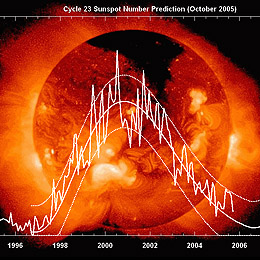
The term “space weather” appears in wide use in the 90s, as such, covering almost the most important aspects of the science of solar-terrestrial relationships. This science is at the junction of solar physics, solar system and geophysics and has been researching the impact of solar variability and solar activity through the interplanetary environment on Earth, particularly in the magnetosphere, the ionosphere, the Earth’s atmosphere. By subject space weather include, for example, the issue of forecasting of solar and geomagnetic activity, the study of influence of solar factors on technical system (radio interference, radiation conditions, etc.), the impact on biological systems and people. One of the first used this phrase A.L. Chizhevsky in one of his publications at the beginning of the XX century.
Research areas
– Predicting geomagnetic indices based on processing and analyzing measurement of data from spacecrafts and ground stations
Main results
– Developed methods of Dst-index forecasting to advance 3-4 hours with a correlation coefficient of over 90% [arXiv: 0906.3271].
– It is established geoeffectivity of two new parameters – meridional and azimuthal angles of the solar wind flow velocity vector direction.
– Built the non-linear dynamic-informational models to predict of space weather.
